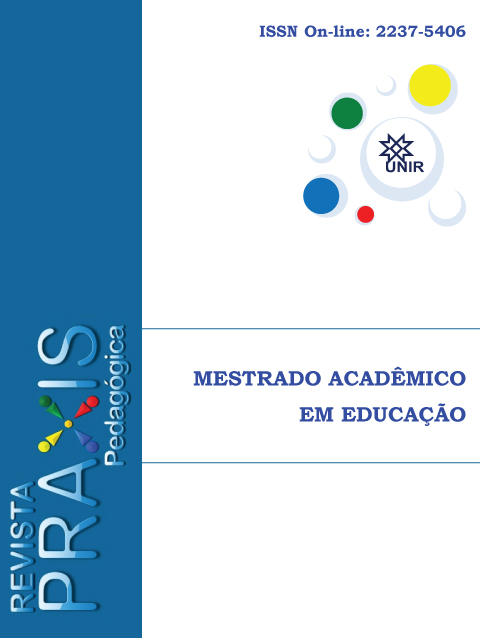CURRICULAR AUTONOMY OF THE TEACHER IN ANGOLA
LIMITS, POSSIBILITIES AND CHALLENGES
DOI:
https://doi.org/10.69568/2237-5406.2019v2n1e3707Keywords:
curricular autonomy, teaching, quality of teaching and learningAbstract
Angola crosses moments of profound changes in various fields. In the case of education, it makes sense to rethink the school, as a strategic location from curricular decision, organizational change and functional that allow to improve teaching and to adapt the education system to the modern imperatives. Inserted in this logic, the publication of the Presidential Decree nº 160/18, of 3 July, seeks to generate, tacitly, a new perspective of curricular management, consigning some margins of autonomy to teachers, as agents, curriculum strengthen your role. Just, sounds like there is still some dissonance between the conditions laid down in the standard and what happens on the ground of the practices. In this sense, in this article we seek to review the curriculum of teacher autonomy in light of the standards referred to in order to find out if ensures educational success of learners. To support our analysis, inspired by a qualitative approach, privilegiámos the bibliographic collection and document analysis. To elaborate the text banter back and forth with Ratti (1998, 2013), Pacheco (2000, 2001), Morgado (2000, 2011, 2016), Afonso (2014) and others who discuss curricular autonomy. Deepening the readings, the authors call attention to the need for a greater autonomy of the teacher, in a collective process founded substantially construction in the context of the school. Is that, although legally be granted some autonomy to teachers, several daily observations and some reports suggest the existence of a certain ignorance of this legal prerogative, because, in many cases, teachers are limited to comply with the central to them and prescribed curricularmente, rather than a shared decision making, putting into question the quality of the teaching and learning process.
Downloads
References
AFONSO, Augusto. O papel do professor na (Re)Construção do Currículo do 1º Ciclo do Ensino Secundário em Angola: das intenções às práticas. Capítulo III da Tese de Doutoramento. Braga: Instituto de Educação e Psicologia da Universidade do Minho, 2004.
ANGOLA. Lei de Bases do Sistema Educativo Angoano. Lei de Base do Sistema de Educação e Ensino Nº 17/16 de 7 de Outubro. Angola, 2016.
LEITE, Carlinda. Para uma escola Curricularmente inteligente. Porto: Edições Asa, 2003.
MACHADO, Manuel. O Papel do Professor na Construção do Currículo. Dissertação apresentada para obtenção do grau de Mestre em Ciências da Educação. Braga: Instituto de Educação e Psicologia da Universidade do Minho, 2006.
MORGADO, José. A (des)construção da autonomia curricular. Lisboa: Edições ASA, 2000.
PACHECO, José. Currículo: teoria e práxis. Porto: Porto Editora, 2001.
______. Tendências de descentralização das políticas curriculares. In José Augusto Pacheco (Org.), Políticas Educativas. O Neoliberalismo em Educação. Porto: Porto Editora, pp. 91-107, 2001.
Downloads
Published
How to Cite
Issue
Section
License
Ao submeter um artigo à Revista Praxis Pedagógica e tê-lo aprovado, os autores concordam em ceder, sem remuneração, todos os direitos de primeira publicação e a permissão para que Praxis Pedagógica redistribua esse artigo e seus metadados aos serviços de indexação e referência que seus editores julguem apropriados.



